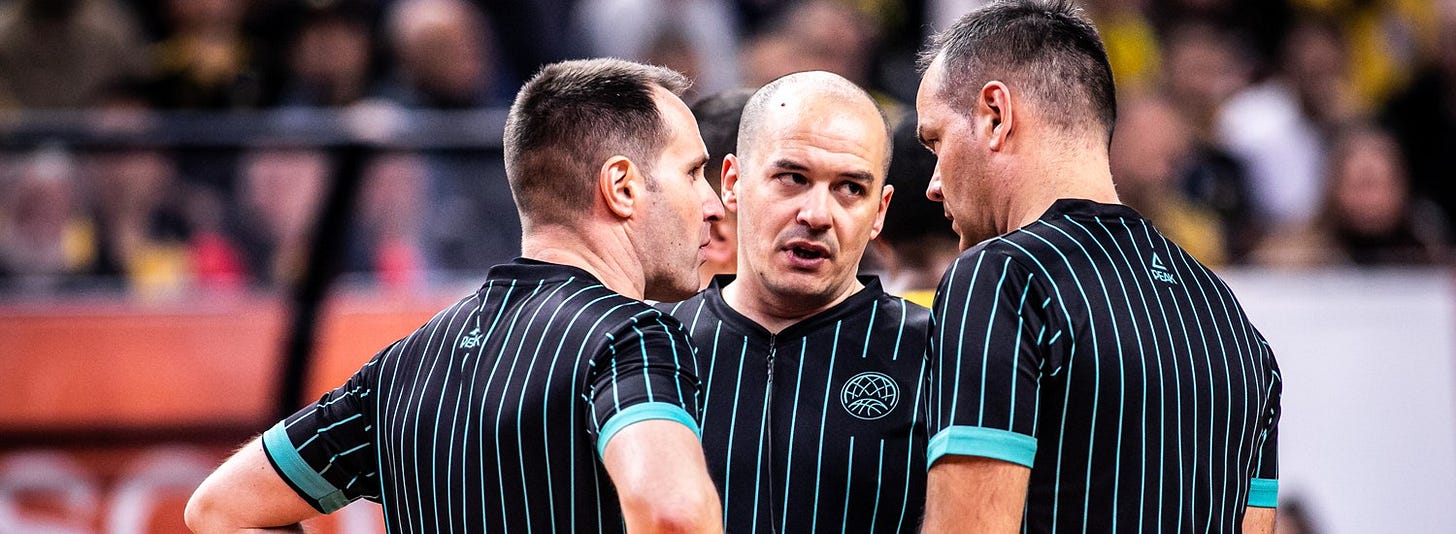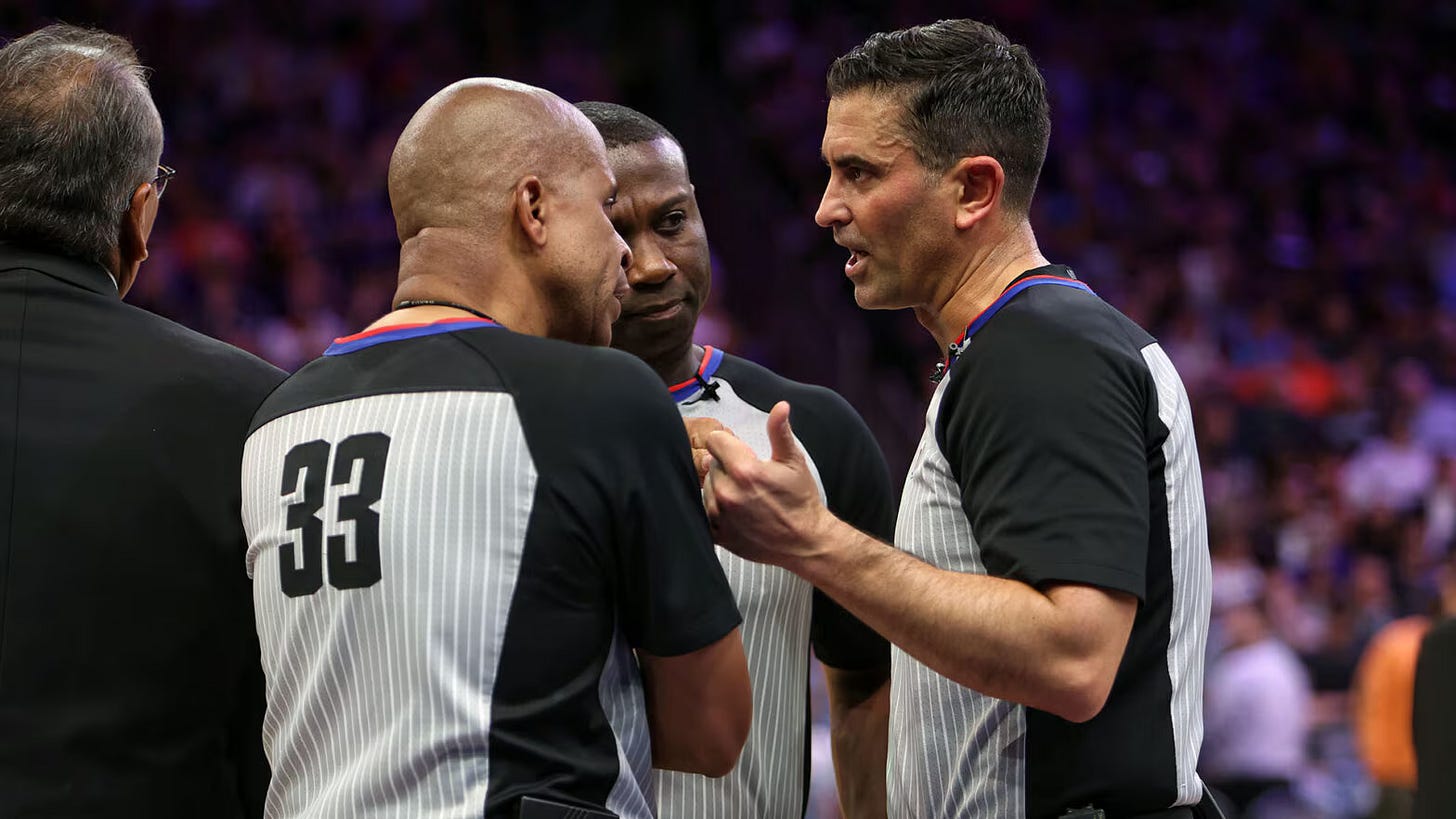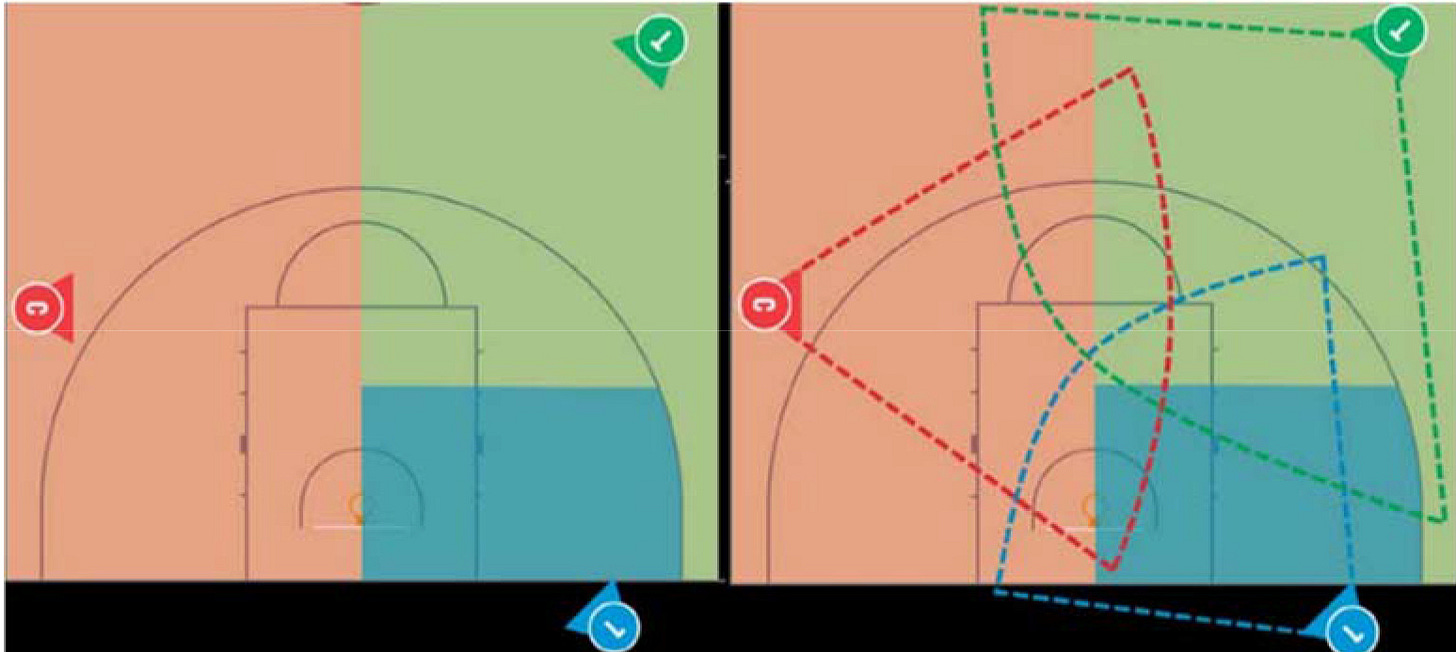Creating The "Third" Team
Learn how to create a better officiating team with these necessary guidelines
In the heat of competition, two teams come together on the field, court, or floor, driven by the desire to emerge victorious and achieve greatness. They fight, grind, and give their all to achieve a unified goal: scoring points and ultimately winning the game. Among the spectacle of athletic skills and strategic plays, there exists another often-overlooked "team" dedicated to enhancing the game's quality, aesthetics, and most importantly, fairness: the team of referees. Despite being referred to as a "team," fostering genuine fellowship within the officiating crew is no easy feat. Like all other aspects of sports officiating, teamwork, and team building require more effort than what meets the eye. How can we make sure that we are a good team?
Let's delve together into the details of team building in sports officiating.
Does the crew have a common goal?
The key to being successful as an official is all about working together with your crew and being on the same page. Everyone might have their own goals like moving up the ranks or getting more games under their belt, but staying focused on the game at hand is what really matters. It's all about having that teamwork and common mission to make the calls and keep things running smoothly.
Crews must prioritize the integrity of the sport above personal interests to function effectively. As a referee, we must always prioritize the game above everything else. Serving and preserving the integrity of the game is our foremost and most important role. Then, there's our team - the crew - which we are currently discussing how to build it. Personal desires should be at the bottom of the priority list because if the game isn't officiated well, individual achievements become irrelevant. People remember bad officiating, not individual referees, regardless of their name, fame, experience, or performance.
Does the crew work on their pre-game preparations?
Each member of the officiating crew carries the responsibility of thorough game preparation. Beyond mandatory preparations, such as weekly case reviews and rule studies, every referee must maintain a complete understanding of the game's needs. Here are some questions that referees must be prepared about;
Have the teams played each other before?
If yes, is the point difference important (for knock-out stages or competition standings)?
Was there any altercations and/or chippy plays between players?
Is there any significant importance of the game for any or both of the teams? E.g: league relegation or advancement, play-off or play-in race
Who are the leaders of each team? On and off the court.
Who are the critical players of each team? Scorers, troublemakers, peacemakers, etc.
What are the playing styles of each team? Do they go for more possessions or play low-tempo? Do they shoot the ball more or play around the paint?
What should we expect from critical match-ups? Is there a funky, quick shooter that we need to be prepared for around the perimeter? Or is there a heavy big around the rim that can be dangerous for one team to defend and potentially foul?
Are there any specific players that
Often make illegal screens?
Use left hand?
Often make traveling with little crab steps?
Often fake being fouled?
These questions will ensure that every member arrives at pregame meetings equipped and prepared, fostering a culture of excellence. Pregame meetings serve as a pivotal platform for coordinating efforts and setting the tone for the upcoming game. Crews must ensure that these sessions are structured, and focused on discussing key points and potential game scenarios.
How does the team handle possible conflicts within?
Officiating is a challenging task that requires a great deal of confidence. However, this confidence can sometimes lead to rigidity when faced with conflicting viewpoints. When officials encounter disagreements, they must find a way to address them constructively without compromising the overall objective of fair and accurate officiating.
To achieve this, officiating crews must work together and cultivate the ability to resolve conflicts swiftly and constructively. They should prioritize the collective goal of fair and accurate officiating over individual egos. This means that each member of the team must be willing to listen to others' opinions and be open to constructive criticism. Effective communication is key, and officials should be encouraged to express their opinions respectfully and listen to their colleagues' viewpoints.
By working together collaboratively and constructively, referees can ensure that all decisions are made with fairness and accuracy in mind. This not only enhances the overall quality of officiating but also helps to maintain the integrity of the sport or activity being officiated.
Is the feedback given within the team balanced?
It is important to address bad calls when they occur to prevent similar mistakes from happening again in the future. However, it is equally important to acknowledge and validate good performance as it helps to build a constructive and positive atmosphere.
Positive feedback can be a powerful tool for motivating referees and boosting their self-confidence. It also fosters a culture of continuous improvement and encourages officials to strive for excellence in their work. By balancing the focus on addressing negative feedback with positive reinforcement, a healthy and productive environment can be created where officials feel valued and motivated to perform at their best.
We need to be mindful of our partner's emotional intelligence before providing negative feedback as not everyone can handle it smoothly. Rushing to give negative feedback on the spot can lead to losing a crew member into a spiral of negative thoughts. Therefore, it's important to know your partner and their emotional capacity before providing negative feedback.
Are the communication channels open among the crew?
Effective communication is a vital aspect of creating a successful officiating team. Referees need to establish a clear and concise communication channel to ensure that they can work together efficiently and make decisions in real-time. A well-functioning officiating team requires open dialogue, mutual respect, and shared accountability among all team members.
Open dialogue among referees enables them to discuss potential issues or conflicts that may arise during a game. By sharing their observations and experiences, referees can come up with solutions to any problems that may arise, which can ultimately lead to better decision-making on the field.
Mutual respect is also crucial for a successful officiating team. Referees must recognize and appreciate each other's skills, experience, and perspectives. This mutual respect will help to create a positive working environment, where all referees feel valued and supported. By mechanics, we have to respect each other’s area of responsibility. This doesn’t mean that we will not take care of each other when someone misses an obvious play, on the contrary, it means that we respect each other to do our jobs but still ready to help when it’s needed.
Does the crew trust each other?
3-person officiating is easy and difficult at the same time. Easy, because being different than 2-person officiating, you share the responsibility and work on less number of match-ups. Difficult because, even though you work on less number of match-ups, considering the positioning on the court, every referee can see an extended area of possible match-ups that overlaps with other referees’ responsibilities.
In areas where two or more officials have overlapping views, it is important that the officiating team works together effectively. Each official should trust their colleagues to make the correct call when they have a better angle on a particular play. If one member of the team is not trusted, it can disrupt the balance and lead to unnecessary double calls, marginal fouls being called, or even phantom calls being made outside of the primary area.
In conclusion
The success of any game depends on the teamwork of the officials, just as much as on the team the fans came to watch. It is crucial to assess the efficiency of your crew's teamwork. Use the questions above as a guideline to ensure that your crew works seamlessly together and delivers a fantastic game experience to the fans.





